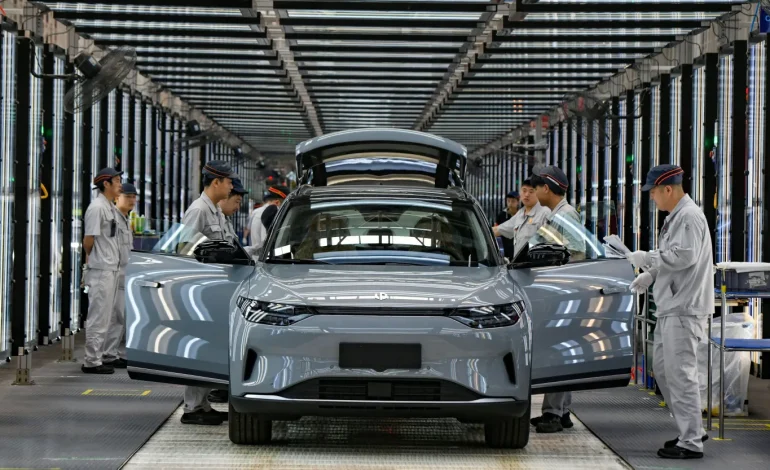The automotive industry experienced a significant jolt on Monday as shares of major automakers dropped sharply following President Donald Trump’s announcement of new tariffs on goods from Canada, Mexico, and China.
This move, aimed at addressing border security and drug trafficking issues, has sparked fears of a trade war and triggered global market volatility.
Trump’s executive orders impose a 25% tariff on imports from Mexico and most Canadian goods, along with a 10% duty on Canadian energy products and Chinese imports. The president acknowledged that Americans might face “some pain” as a result but emphasized the necessity of these measures to protect US citizens and bolster domestic industries.
“These tariffs are essential to combating the major threat of illegal aliens and deadly drugs killing our citizens, including fentanyl,” Trump stated.
Automaker stocks plummeted in response to the announcement. General Motors saw an 8% drop in pre-market trading, while Ford fell more than 5%. The ripple effect extended to global markets, with European car parts suppliers and automakers such as Stellantis, Volkswagen, and BMW experiencing declines of up to 7%.
In Asia, Japanese giants Toyota, Nissan, and Honda all faced losses exceeding 5%, with Mazda and Kia following suit. Analysts predict that the tariffs will significantly impact the global automotive sector due to its reliance on complex supply chains and cross-border manufacturing operations, particularly in North America.
Trump hinted that the European Union might be the next target for tariffs, which has raised concerns among European automakers. The EU has pledged to respond proportionately to any additional US duties.
German automotive leaders, already grappling with economic challenges and sluggish demand in China, have voiced concerns. Volkswagen emphasized the importance of stable trade relations and urged constructive talks between trading partners to avoid further conflict.
While businesses are directly responsible for tariff payments, consumers may ultimately bear the brunt of increased costs as companies pass expenses down the supply chain. Economic analysts warn that higher tariffs could lead to rising prices, inflationary pressures, and potential job losses in sectors dependent on foreign components.
Despite these challenges, Trump’s administration remains optimistic about the long-term benefits of the tariffs, framing them as a strategic move to strengthen the US economy and protect American interests.
With input from CNBC and the Associated Press.










The latest news in your social feeds
Subscribe to our social media platforms to stay tuned